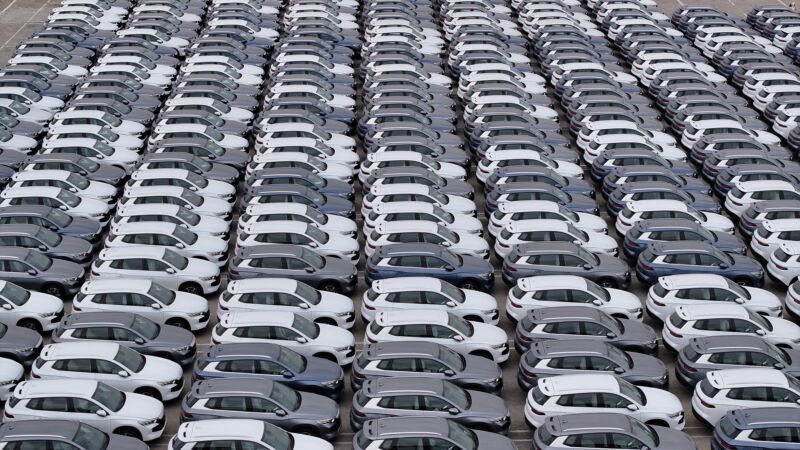- Регистрация
- 17 Февраль 2018
- Сообщения
- 25 395
- Лучшие ответы
- 0
- Баллы
- 2 093
Offline

Enlarge / New energy vehicles are being loaded into containers for export at Taicang Port and Taicang International Terminal in Suzhou, Jiangsu Province, China, on April 26, 2024. (credit: Photo by Costfoto/NurPhoto via Getty Images)
President Joe Biden is expected to levy new 100 percent tariffs targeted at specific Chinese industries, including electric vehicles, on Tuesday. The announcement follows growing calls from automakers, unions, and bipartisan efforts in Congress to address the problem of China unfairly subsidizing its own industries to undermine foreign competitors.
Why are Chinese EVs so cheap?
The Chinese government has been giving its green industries heavy direct subsidies for some time now, far in excess of those handed out by US or European governments. For EV makers like BYD, this has meant billions of dollars a year, in addition to the consumer-facing tax benefit for car buyers, similar to how EV sales are incentivized in the US.
Brands like BYD have concentrated on making their cars cheaper to build—only using one windshield wiper instead of two, for example—but also through vertical integration. Other than Tesla, automakers in the US, Europe, Japan, and Korea instead rely heavily on multiple tiers of suppliers, most of whom supply parts to more than one automaker.
Read 9 remaining paragraphs | Comments
